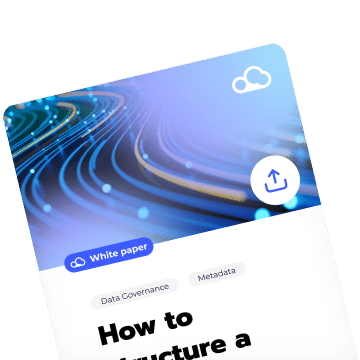In an era where data drives almost every aspect of business operations, understanding how to manage it becomes paramount. Data management frameworks create a cohesive set of standards, policies, and procedures that ensure data is handled efficiently and effectively throughout its lifecycle. A well-constructed framework not only ensures the quality and integrity of data but also facilitates its usability across various business functionalities.
The Underlying Principles
A data management framework is built upon certain foundational principles that guide its construction and implementation:
- Standardization: One of the primary objectives of a data management framework is to ensure that data across the enterprise is consistent. This means having a standard format, structure, and taxonomy.
- Accessibility: Data should be easily accessible to those who need it. However, clear restrictions can be set in place to maintain data privacy and security.
- Integrity: The framework should ensure that the data remains accurate, reliable, and free from corruption.
- Lifecycle management: From its creation to disposal, every phase of data’s life should be managed and monitored.
The core components
A robust data management framework consists of several core components:
- Data governance: This encompasses the overall strategy, policies, and procedures that guide data management practices within an organization. It includes establishing clear roles and responsibilities related to data, from data owners to custodians.
- Data quality: Ensuring the accuracy, reliability, and relevance of data is pivotal. This involves processes for data cleansing, validation, and ongoing quality checks.
- Data security: With increasing threats to data, its security cannot be overlooked. This covers access controls, encryption, and other protective measures.
- Data architecture and storage: Structuring data optimally and choosing the right storage solutions, whether on-premises or in the cloud, are crucial decisions within the framework.
- Data integration: This pertains to combining data from several sources and ensuring it is cohesive and usable for analytics or other purposes.
Significance in different sectors
Each industry has its unique set of data challenges and requirements. However, a data management framework remains universally vital, adjusting its specifics based on the sector’s needs:
- Healthcare: A comprehensive healthcare data catalog can serve as a cornerstone in this sector. Given the sensitive nature of health records and the need for timely access to patient data, the framework here emphasizes data privacy, accuracy, and swift integration.
- Manufacturing: For the manufacturing domain, the framework might lean heavily into integrating data from various sources. From shop floor data to supply chain analytics, a manufacturing industry data catalog ensures seamless data flow, driving efficiency.
- Energy: In the energy sector, where timely data is pivotal for operations like grid management and energy trading, a data management framework focuses on real-time data collection, analysis, and dissemination. An energy industry data catalog serves as an organized repository, ensuring swift access to vital information ranging from energy production metrics to consumption trends.
- Retail: The retail industry is characterized by vast volumes of transactional data, customer preferences, inventory levels, and more. A data management framework here prioritizes customer data analytics, inventory management, and sales forecasting. Leveraging a retail industry data catalog aids in effectively managing product information, understanding consumer behavior, and tailoring marketing strategies accordingly.
- Banking and Insurance: These sectors are inundated with financial data, transaction histories, customer profiles, and risk assessment data. The framework in these industries underscores data security, fraud detection, and compliance. Efficient data management is vital to assess risks, process claims, or even understand customer financial behaviors, making services like the banks/insurance company data catalog invaluable.
- Public Sector: Governmental and public sector entities deal with vast amounts of citizen data, public infrastructure information, and policy-related data. The data management framework here stresses transparency, accessibility for public insight, and top-tier security to protect sensitive information. Implementing a public sector data catalog can facilitate smoother public services, from urban planning to public welfare schemes.
Why businesses can’t afford to overlook data management
Today, businesses that do not prioritize their data management strategies risk inefficiencies, potential regulatory breaches, and missed opportunities. Here is why adopting a robust framework is non-negotiable:
- Regulatory compliance: With data regulations becoming stringent, businesses need to ensure they handle data in compliance with laws like GDPR or CCPA. A framework provides clear guidelines, reducing the risk of breaches.
- Informed decision-making: With a structured approach to data, businesses can derive meaningful insights, directly translating to better decision-making, driving competitive advantage.
- Operational efficiency: A streamlined data management process, from ingestion to disposal, ensures that teams spend less time grappling with data issues and more on core business functions.
- Customer trust: Ensuring data privacy and security builds trust. Customers are more likely to engage with businesses that demonstrate a commitment to protecting their data.
- Scalability: As businesses grow, so does the volume, variety, and velocity of their data. A robust data management framework is designed to accommodate this growth, ensuring that even as data scales, its quality, accessibility, and security remain uncompromised. Without such a framework, businesses could face significant challenges in managing and extracting value from their expanding datasets.
- Cost efficiency: Inefficient data management can lead to redundancies, data duplication, and unnecessary storage costs. An effective framework ensures optimal data storage, reducing unnecessary expenses. Moreover, by preventing data breaches or non-compliance penalties, businesses can avoid hefty fines and reputational damage.
- Innovation and competitive advantage: In today’s digital age, innovation often stems from insights derived from data. A data management framework ensures that data is in the right shape and readily available for analysis. Companies that prioritize their data strategy are better positioned to introduce innovative solutions, products, or services, giving them an edge over their competitors.
Challenges in implementation
While understanding the significance of a data management framework is one thing, implementing it is another. Organizations often face challenges such as:
- Resistance to change: Existing processes and systems might be deeply ingrained, and there could be resistance from teams accustomed to a certain way of handling data.
- Lack of clarity: Without a clear vision and understanding of what the framework seeks to achieve, implementation can become directionless.
- Resource constraints: Implementing a comprehensive framework might require investments in new tools, training, or even hiring specialists.
- Complexity in integration: For businesses with legacy systems, integrating them into the new framework can be complex and time-consuming.
In a world that is swiftly gravitating toward data-centric operations, a data management framework is not just a good-to-have but a necessity. It equips businesses to navigate the complexities of data management, ensuring they harness its full potential. From ensuring compliance and security to driving operational excellence, the benefits of a well-structured framework are manifold. While challenges in implementation might arise, the long-term gains, both in terms of efficiency and competitiveness, make the endeavor worth every ounce of effort.
__________________________
Interested in learning even more about using your data as an asset to achieve higher levels of data governance and data quality? Book a demo today to get started on your organization’s journey to complete data lifecycle management with DataGalaxy!





